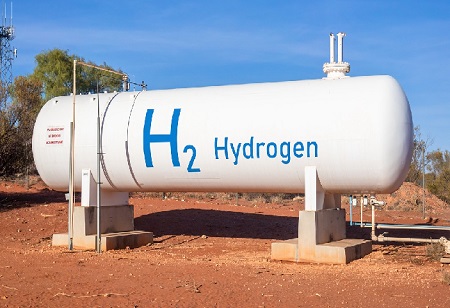
India Hydrogen Alliance (IH2A), a Delhi-based business body, declared it has submitted a national green hydrogen hub economic viability and growth scheme to the Prime Minister’s Office, Cabinet Secretariat, and the Ministry of Renewable and New Energy in the Government of India. It said that the Plan has the potential to establish five large national green hydrogen corporations worth $5 billion by 2030, through public-private partnerships.
“The Plan seeks public finance to help green hydrogen production and offtakes to create the necessary facilities in the initial 2024-2030 period, and publicly list the national hydrogen corporations generated as a result to fund the next wave of investments to scale up the hydrogen economy,” said.
This is a pathway for India to speed up green hydrogen hub growth and create national infrastructure assets in a financially viable manner, said Jill Evanko, chief executive and president, Chart Businesses, and establishing member, IH2A. “India can leapfrog other economies on renewable energy development, by distributing the risks and rewards of green hydrogen project development between public and private sectors. Sustained public finance support for national hubs is crucial for financial viability,” she said.
Evanko inserted that India should announce at least one of these large-scale renewable energy hubs during the G20 Summit this year. “The Indian government appears to gain significantly from this approach, which demonstrates how India can create a National Green Hydrogen Unicorn within the next seven years,” she said.
According to IH2A, the scheme was created by beginning with a reference economic model of the green Kochi hydrogen hub, as a 50:50 public-private special purpose vehicle with a 150-MW electrolyzer capacity, storage and evacuation structures, renewable energy inputs, green ammonia production plants, and offtake by industrial and mobility users, with a $468-million capex outlay over a 20-year project period.
The Plan suggests similar large-scale sustainable hydrogen hubs to be developed in Gujarat, Maharashtra, Karnataka, Tamil Nadu and Andhra Pradesh. “The economic modeling is based on few assumptions regarding public finance incentives, renewable energy costs, end-use offtake and project structuring on a public-private partnership format,” said Amrit Singh Deo, senior managing director, FTI Consulting, and IH2A Secretariat lead.
Deo added that the model is comparable and demonstrates that financially viable green hydrogen can be designed and built. The model can be helped with techno-commercial studies, and should accelerate project development, she said. IH2A has submitted ideas for state-level green ammonia and hydrogen hubs to Gujarat, Maharashtra, Andhra Pradesh, Karnataka, Kerala, and Tamil Nadu, added.
We use cookies to ensure you get the best experience on our website. Read more...